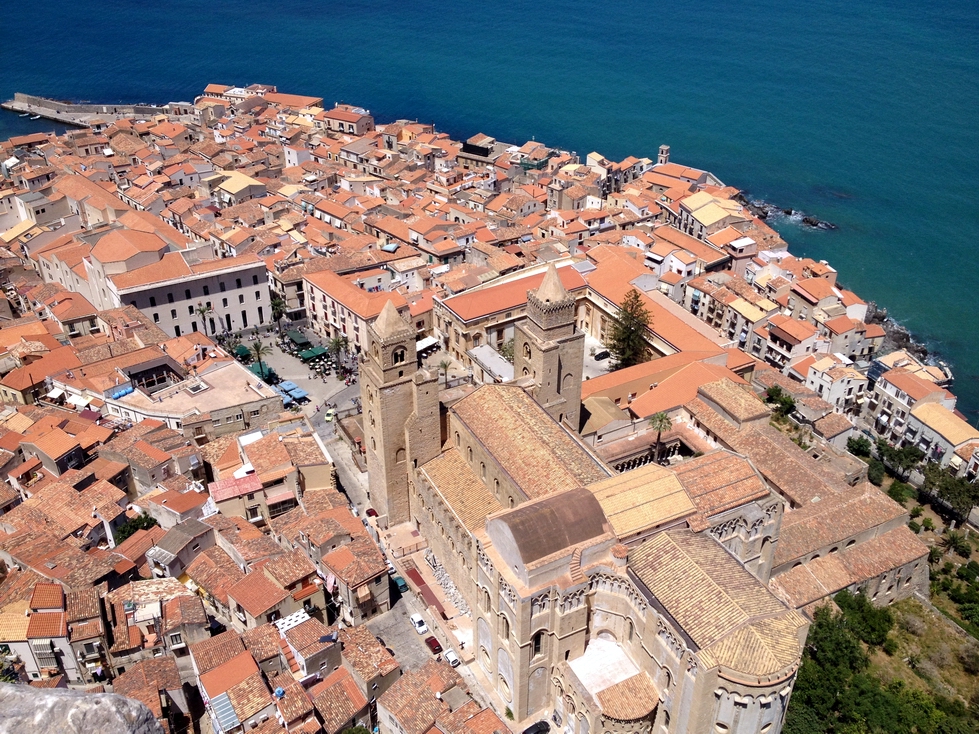
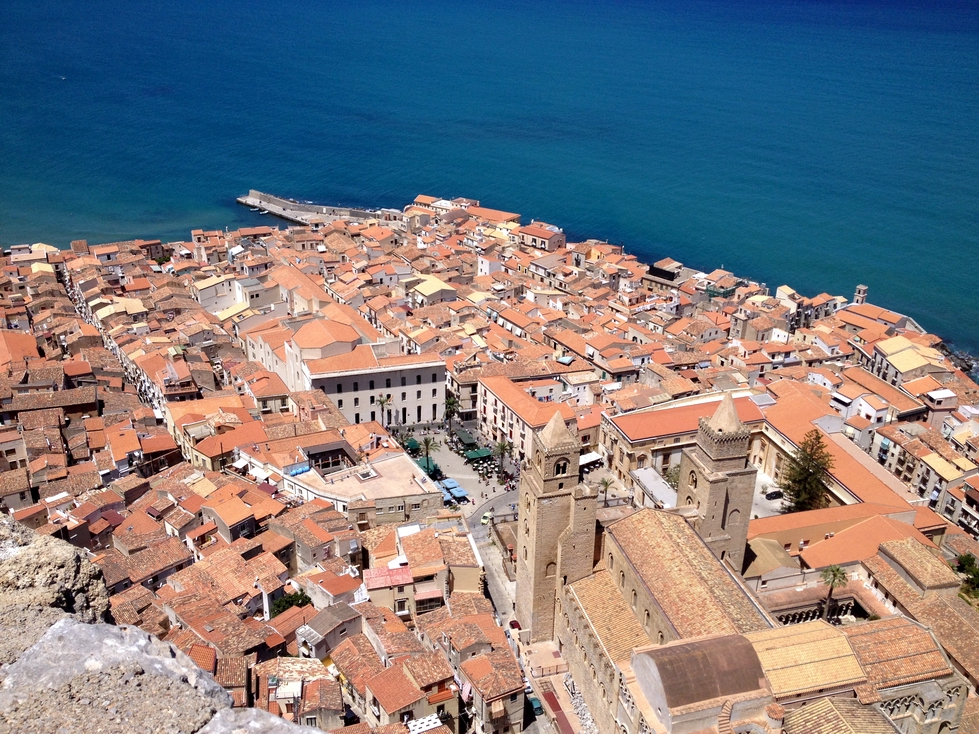
La Rocca
Above Cefalu, Sicily
Many historians believe Cefalu began as a fortress,
belonging to the Himeraeans, and may very likely have been first peopled
by refugees after the destruction of Himera.


Its name first appears in history at the time of the
Carthaginian expedition under Himilco, 396 BC, when that general concluded
a treaty with the Himeraeans and the inhabitants of Cephaloedium (Cefalu).
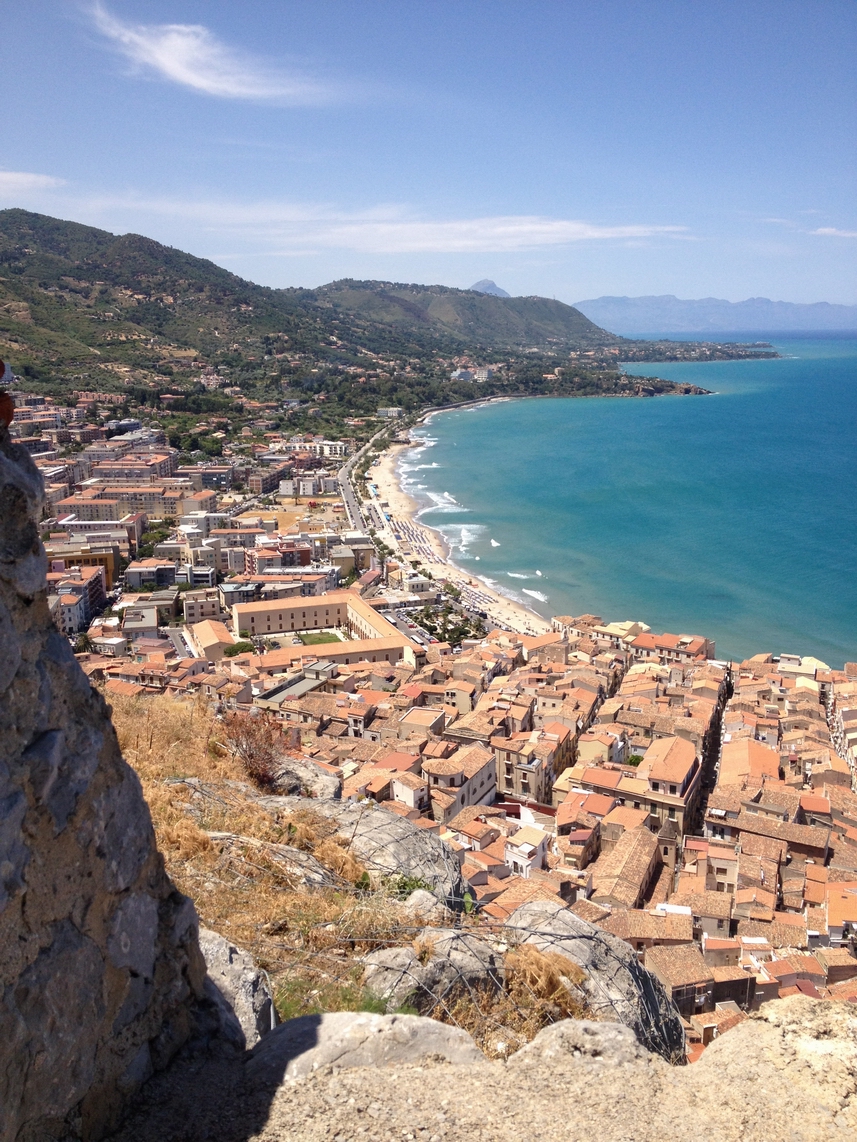
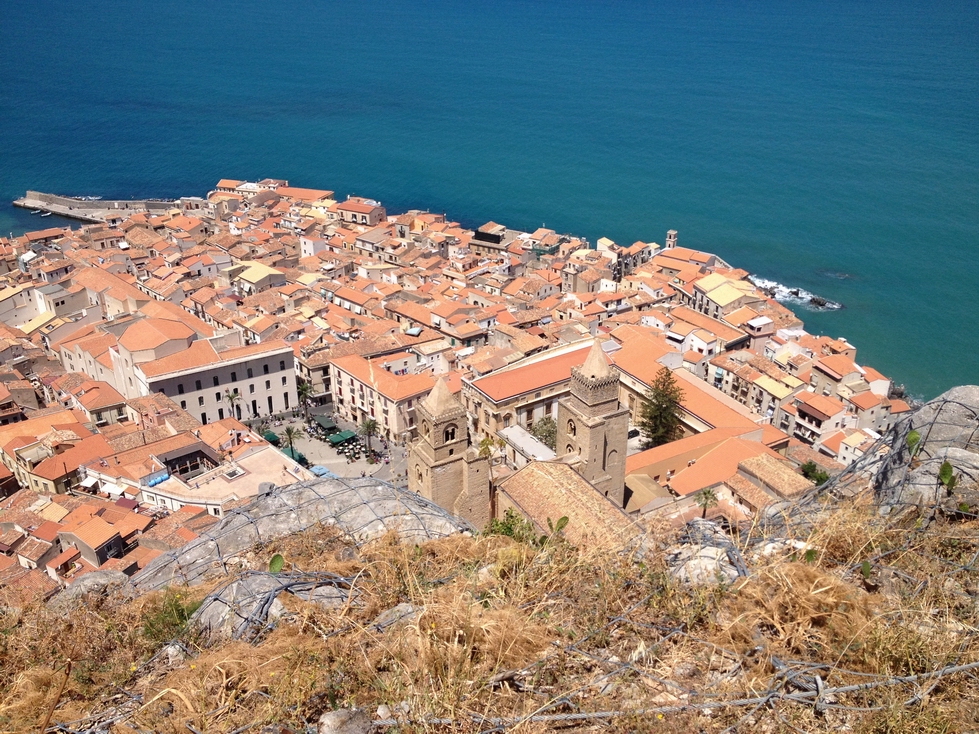
But after the defeat of the Carthaginian armament,
Dionysius the Elder made himself master of Cephaloedium (Cefalu), which
was betrayed into his hands. At a later period Cefalu again became independent,
but apparently on friendly terms with the Carthaginians, on which account
it was attacked and taken by Agathocles, 307 BC.
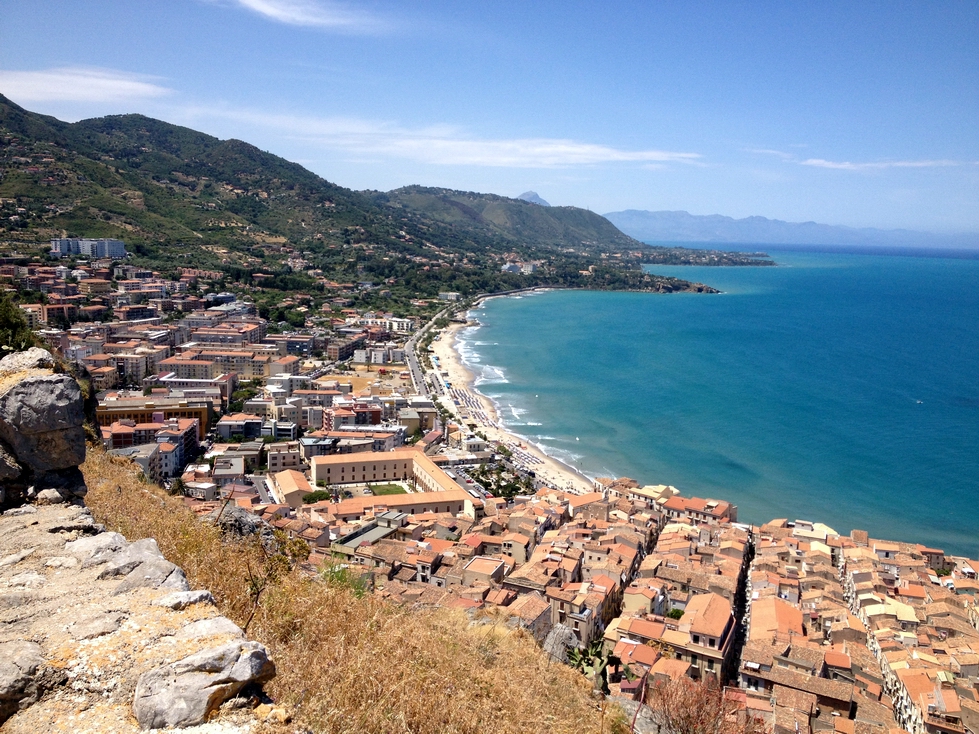
Looking westward towards Palermo
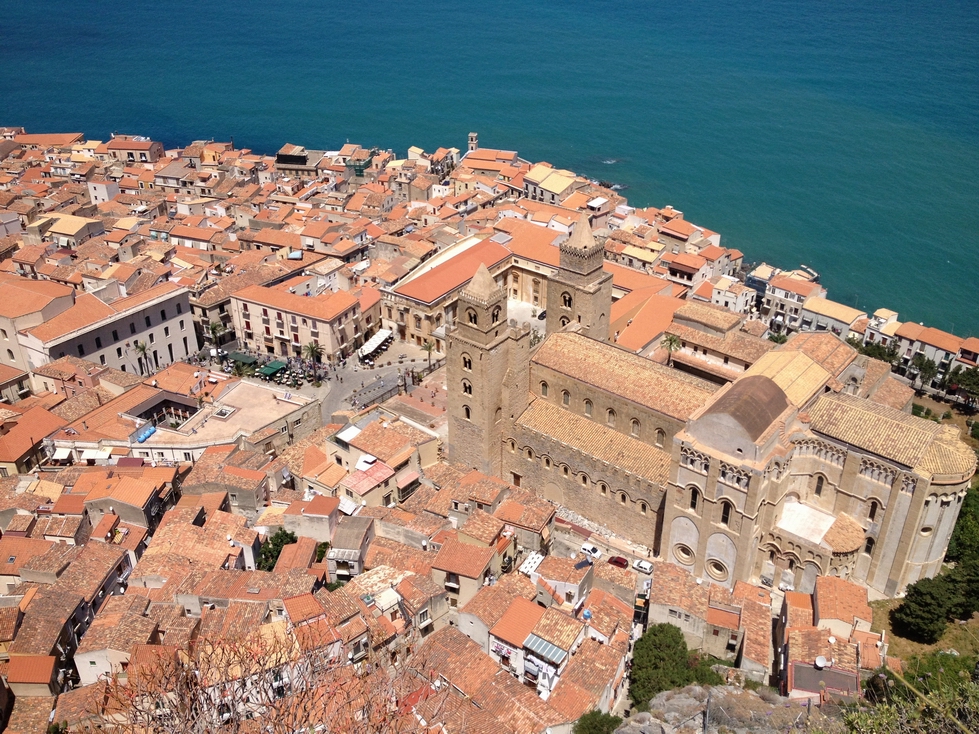
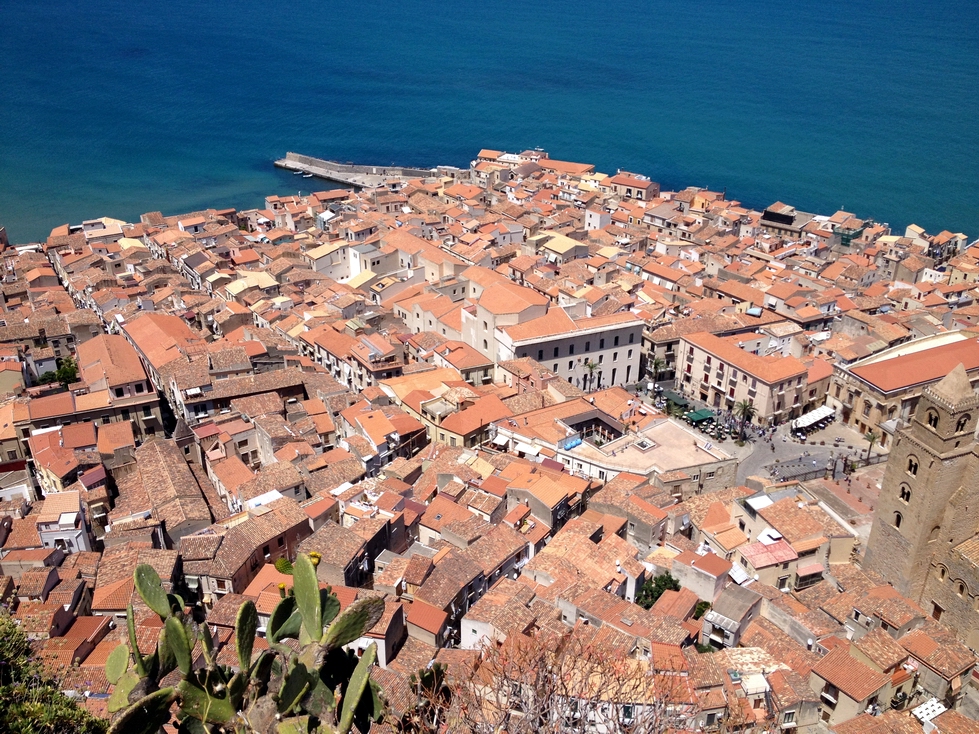
In the First Punic War, Cefalu was reduced by the Roman
fleet under Atilius Calatinus and Scipio Nasica, 254 BC, -- by treachery
and not by force of arms. Cicero speaks of Cefalu as apparently a flourishing
town, enjoying full municipal privileges; it was, in Cicero's time, one
of the 'civitates decumanae' which paid the tithes of their corn
in kind to the Roman state. Cefalu also minted coins. No subsequent mention
of it is found in history, but it is noticed by the geographers Strabo,
Pliny, and Ptolemy, among the towns of Sicily, and at a later period its
name is still found in the Itineraries.
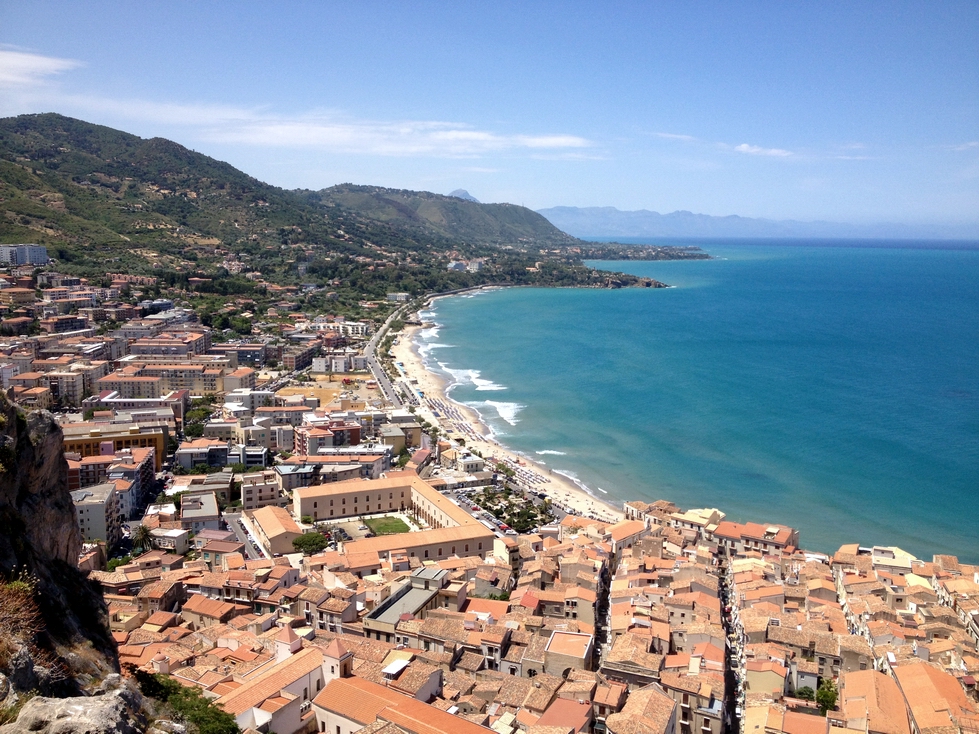
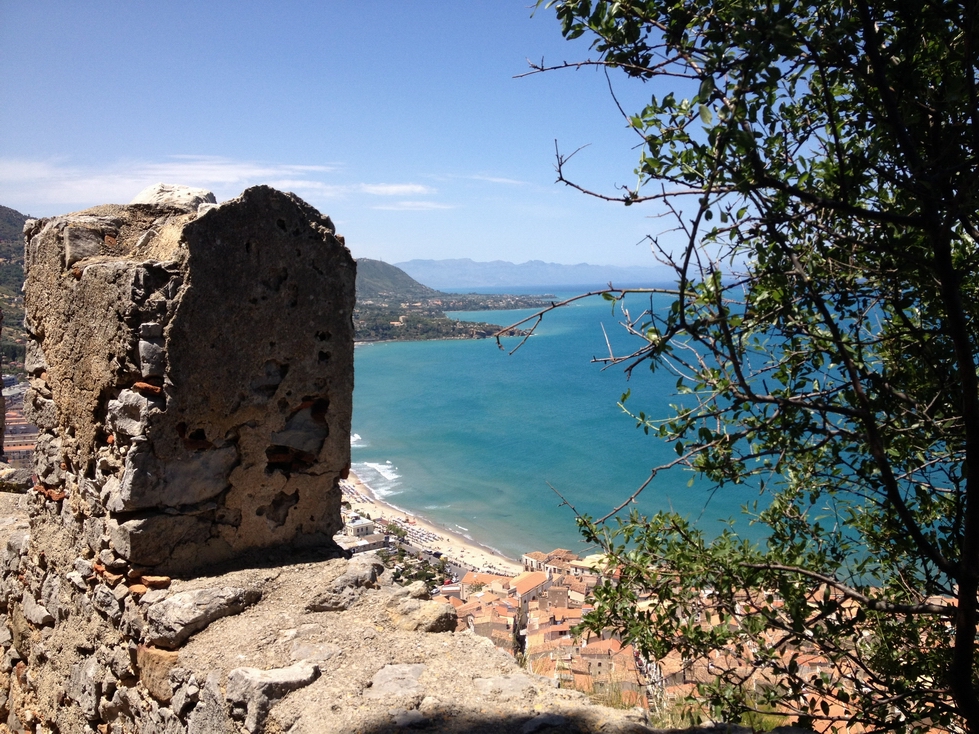
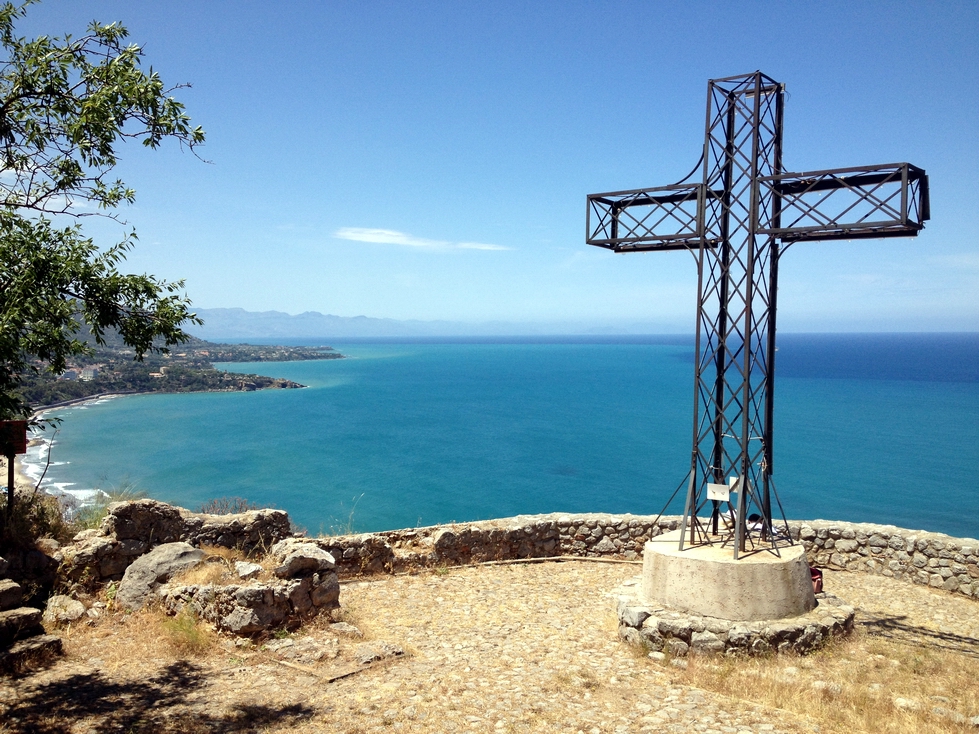
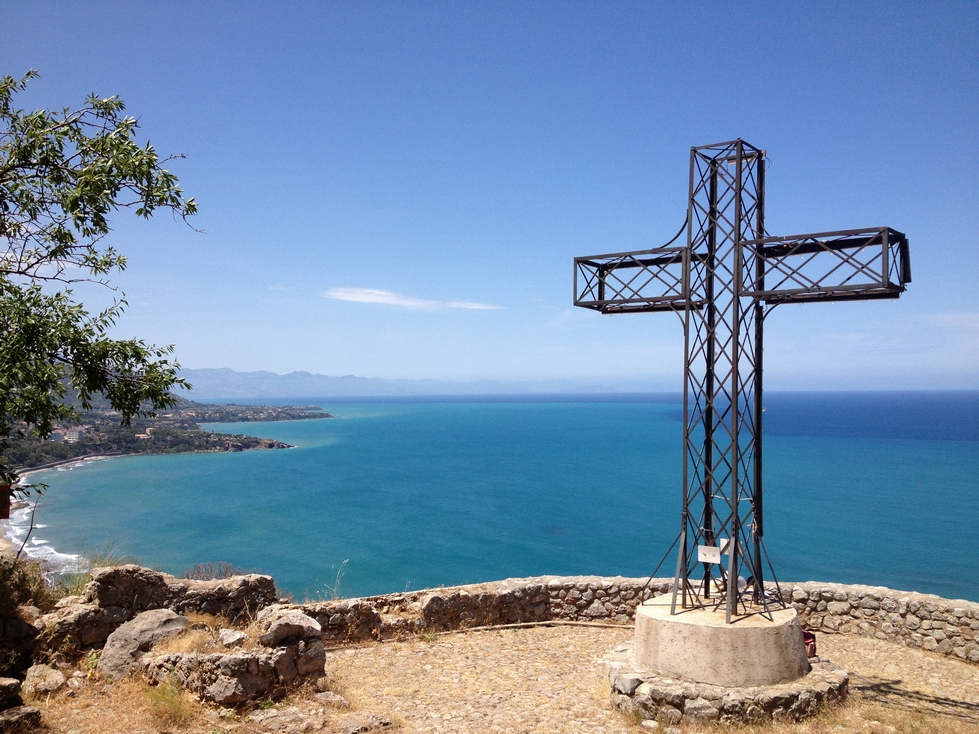
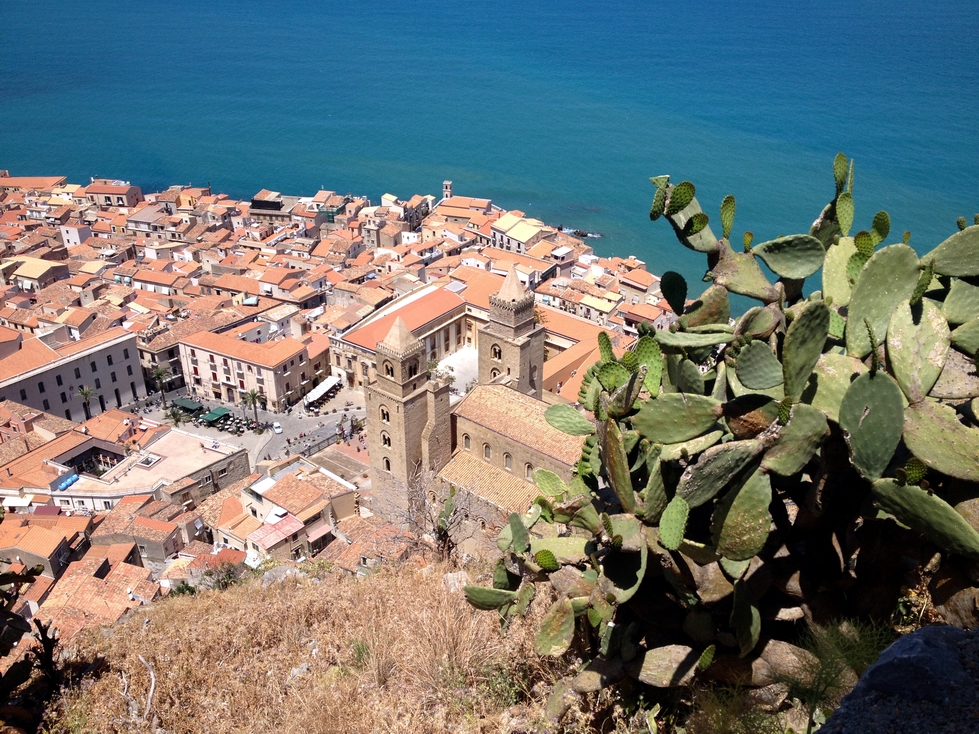
During the Byzantine domination the settlement was
moved from the plain to the current spur, although the old town was never
entirely abandoned. In 858, after a long siege, it was conquered by the
Arabs, and rechristened Gafludi. For the following centuries it was part
of the Emirate of Sicily.
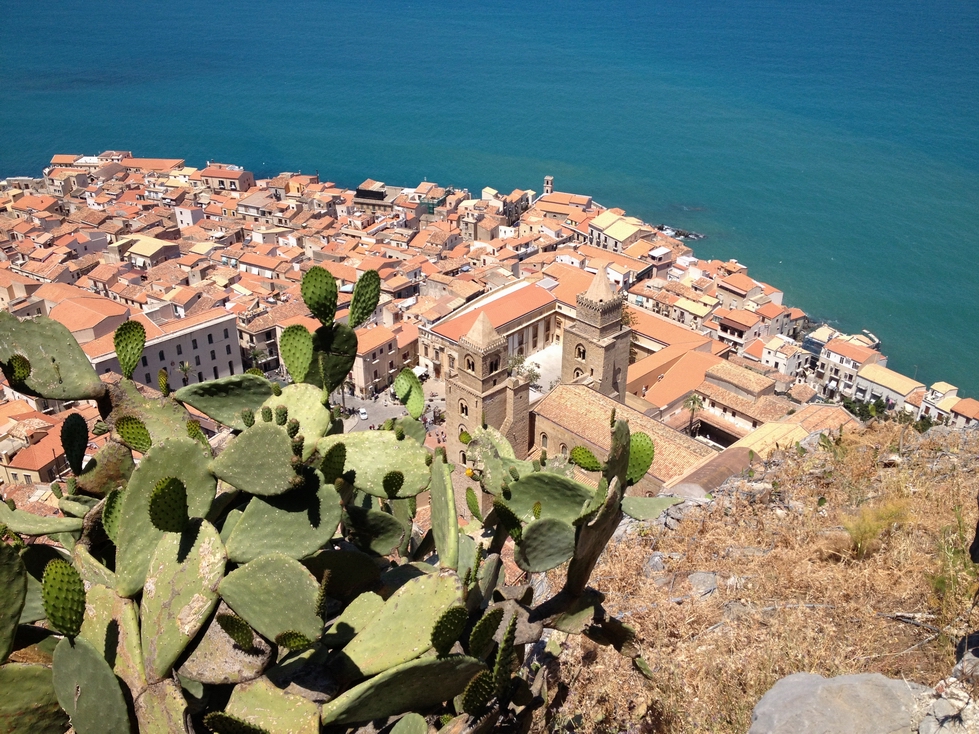
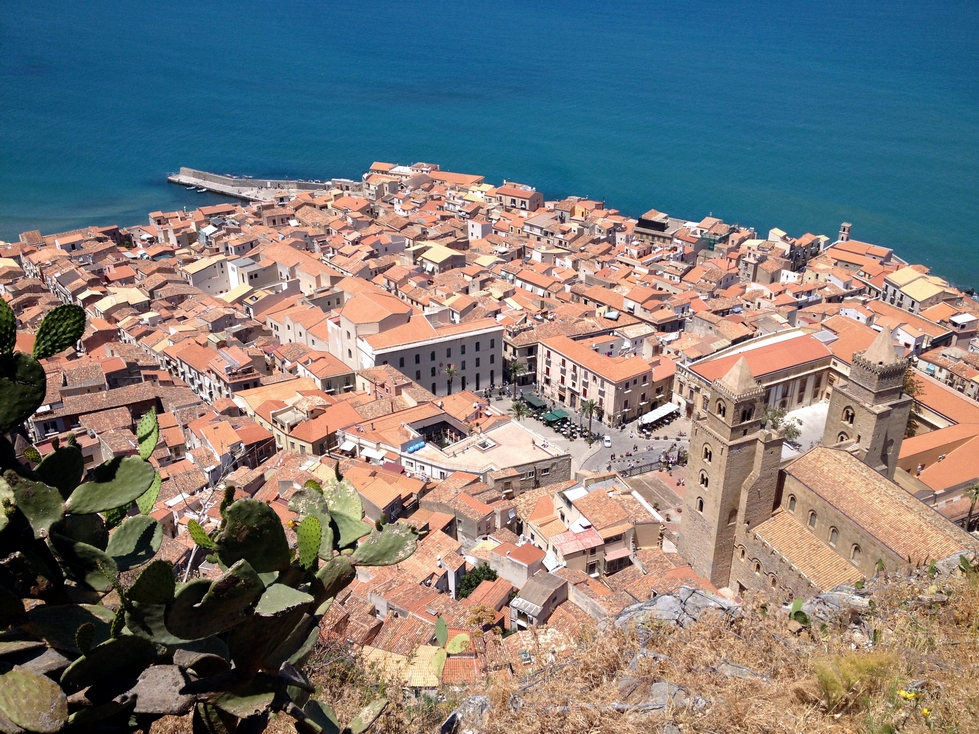
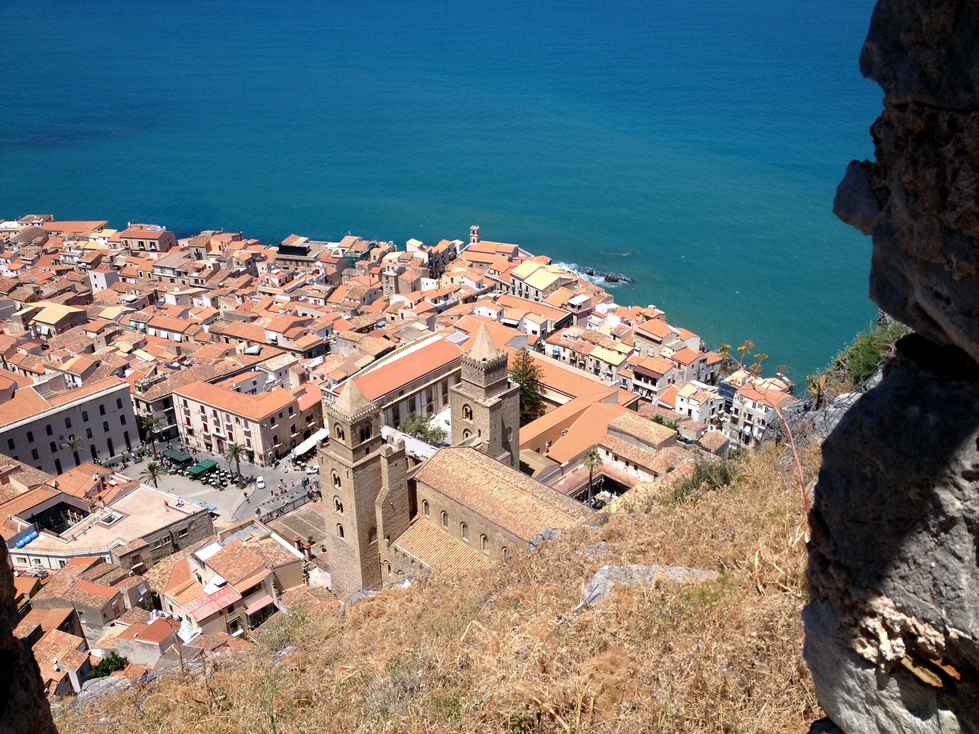
One cannot miss "La Rocca" (The Rock) which dominates
the skyline above Cefalu
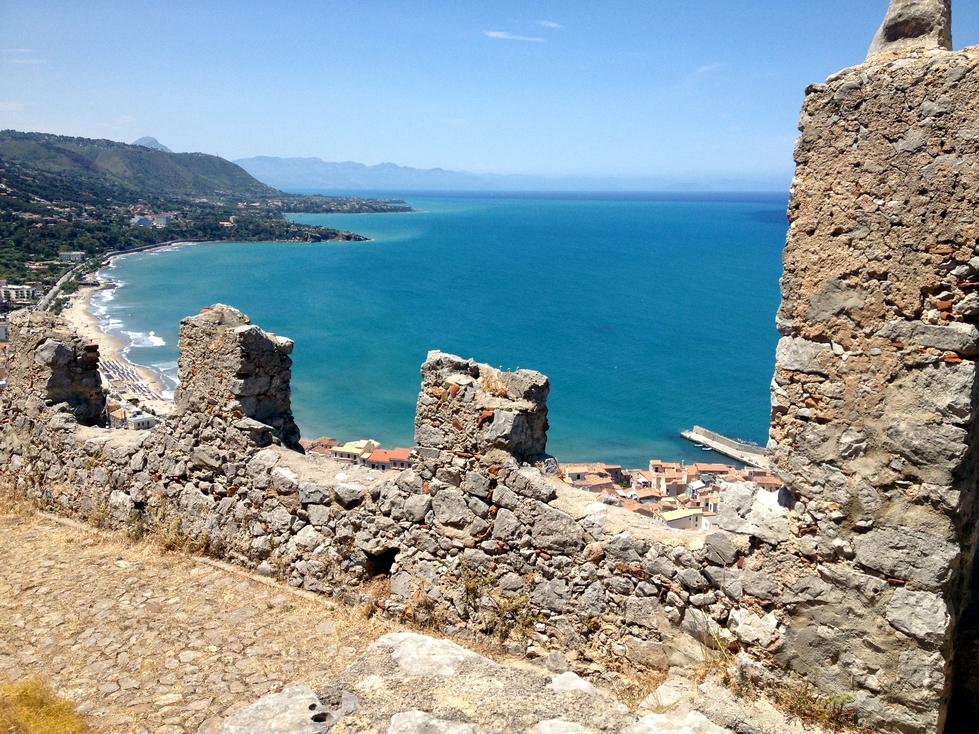
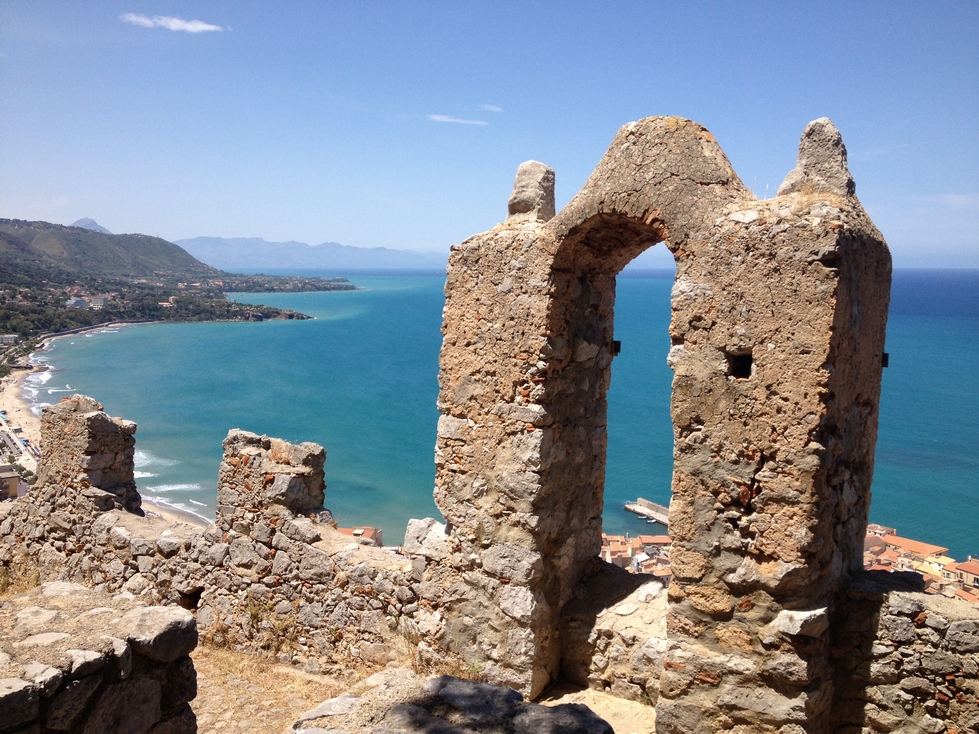
Looking west into the Tyrrhenian Sea
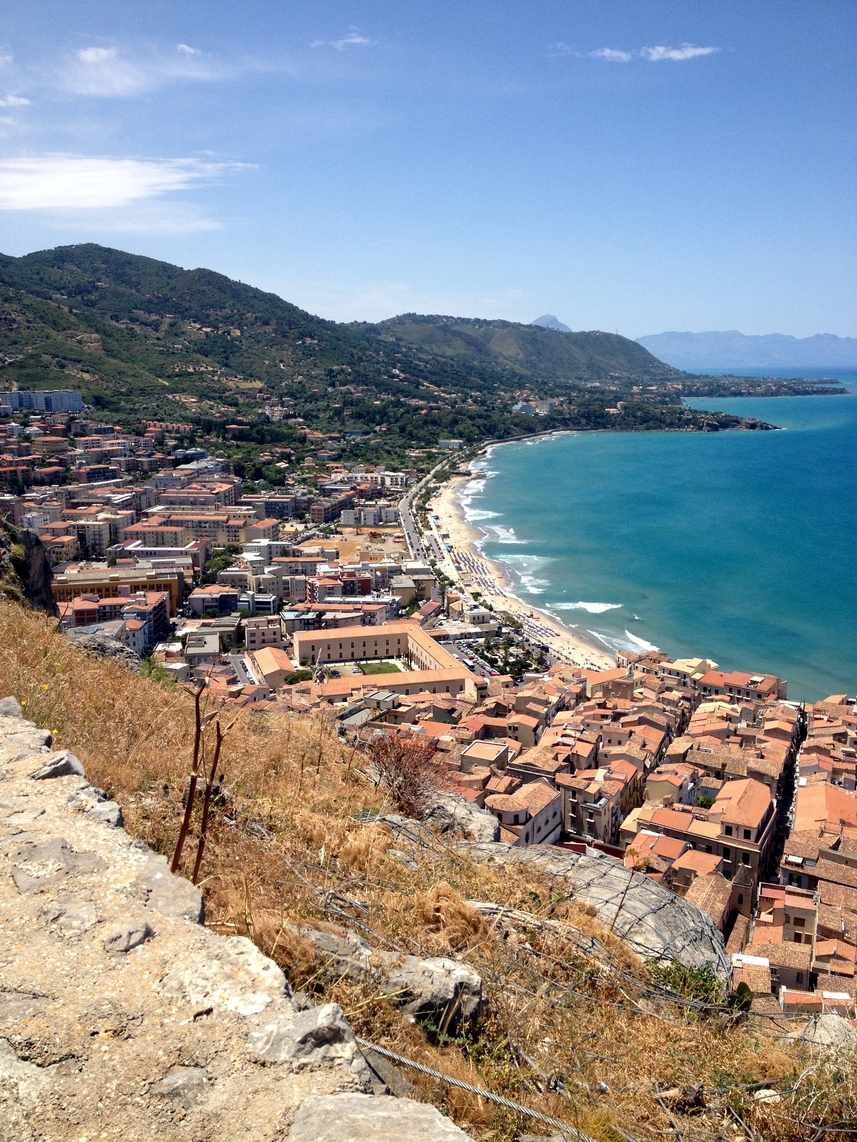
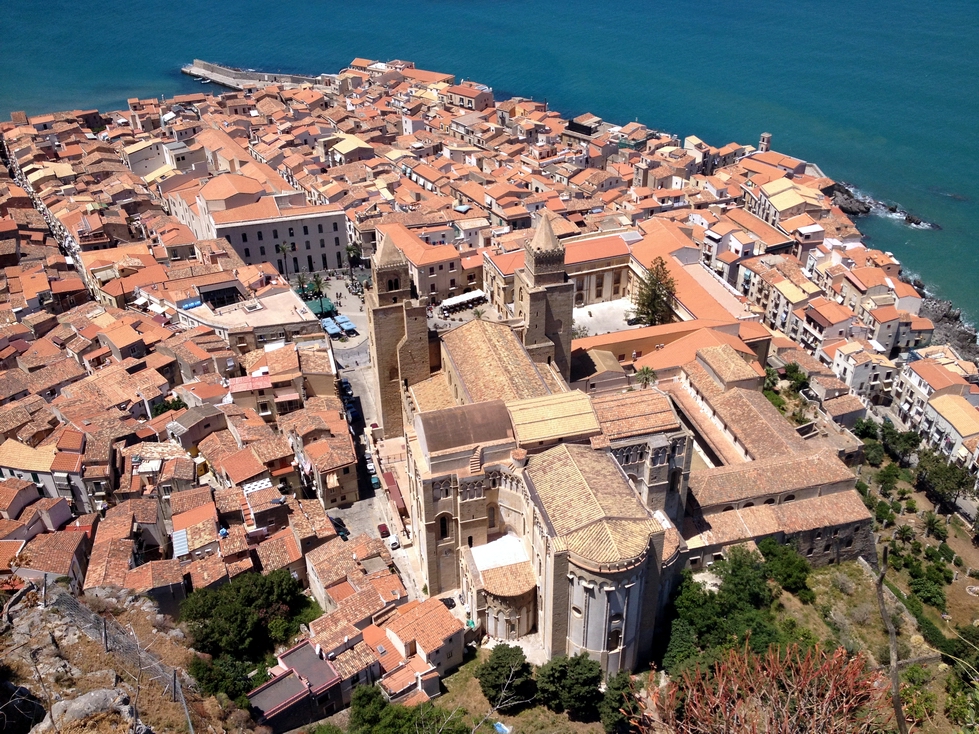
The Great Norman Cathedral below La Rocca
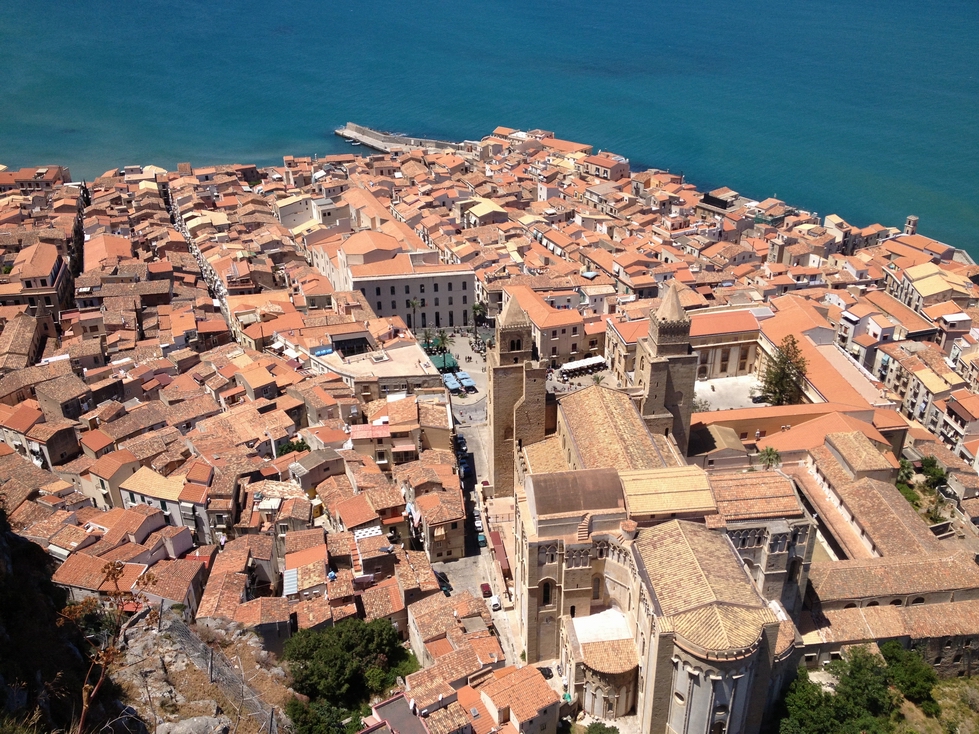
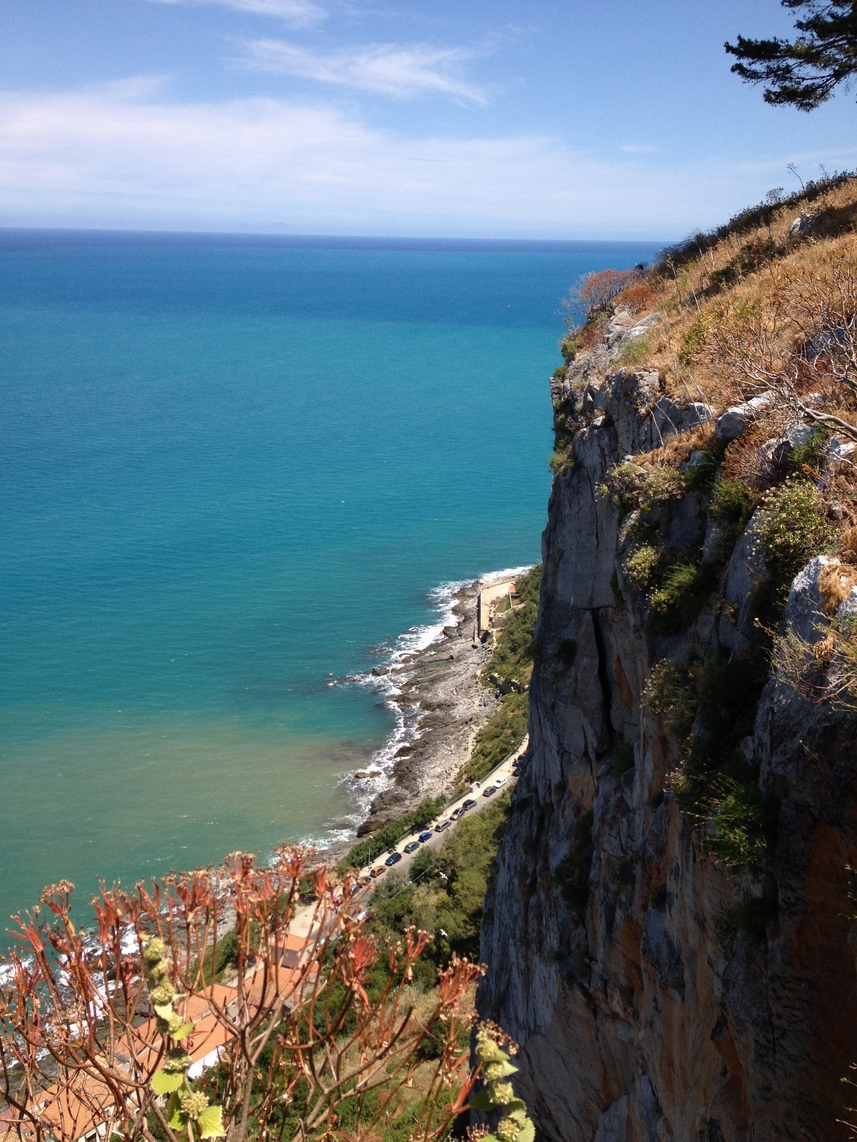
Looking north-eastward toward the Aoelian Islands
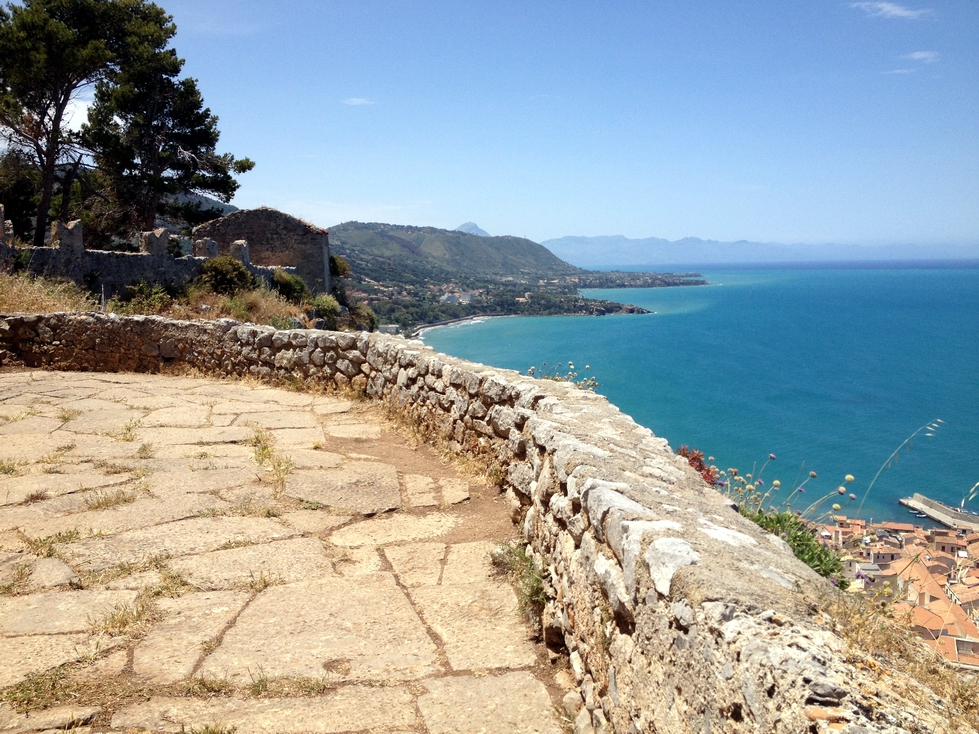
Parts of the crenellated walls and the promontory view
encompasses the surrounding area from Capo d' Orlando to Palermo
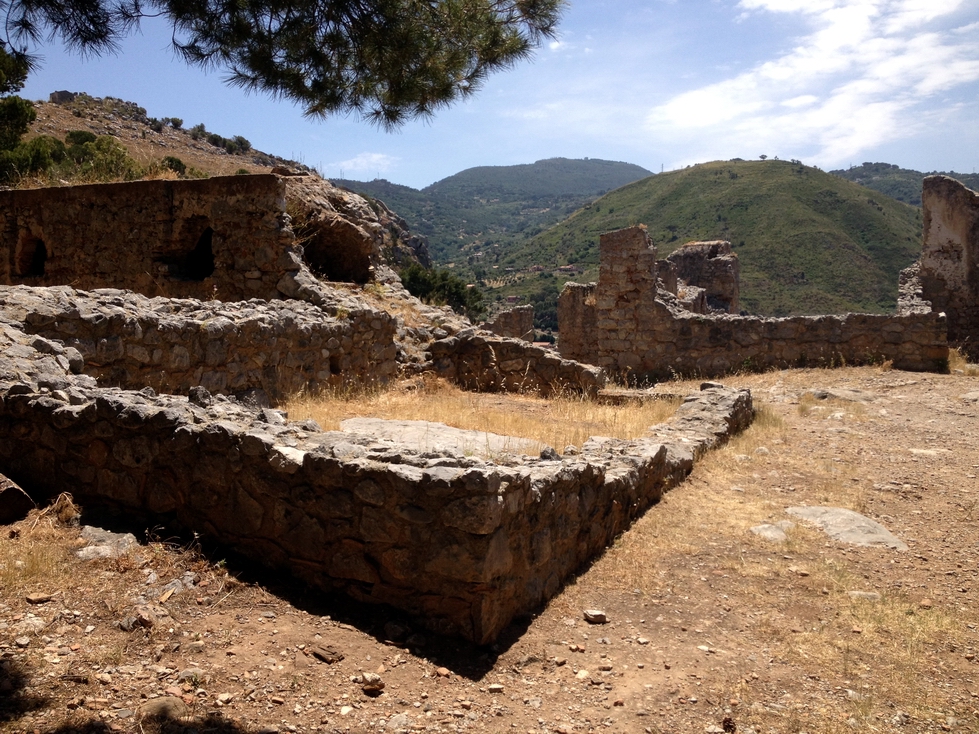
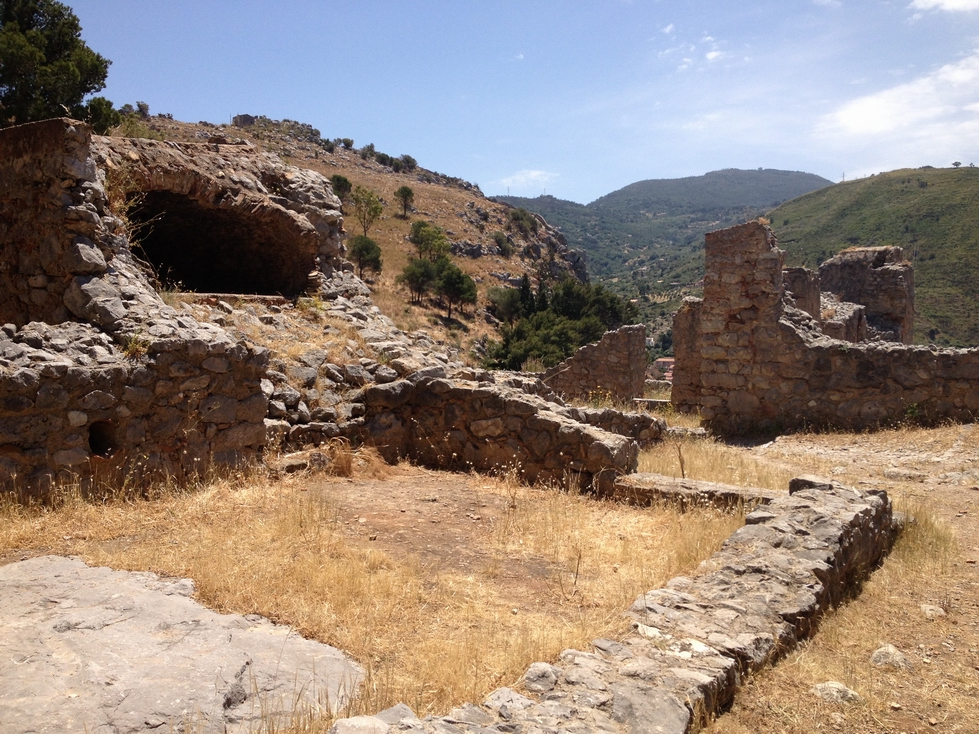
Ancient fortification at the time of the Arab invasion
of Sicily (800AD)
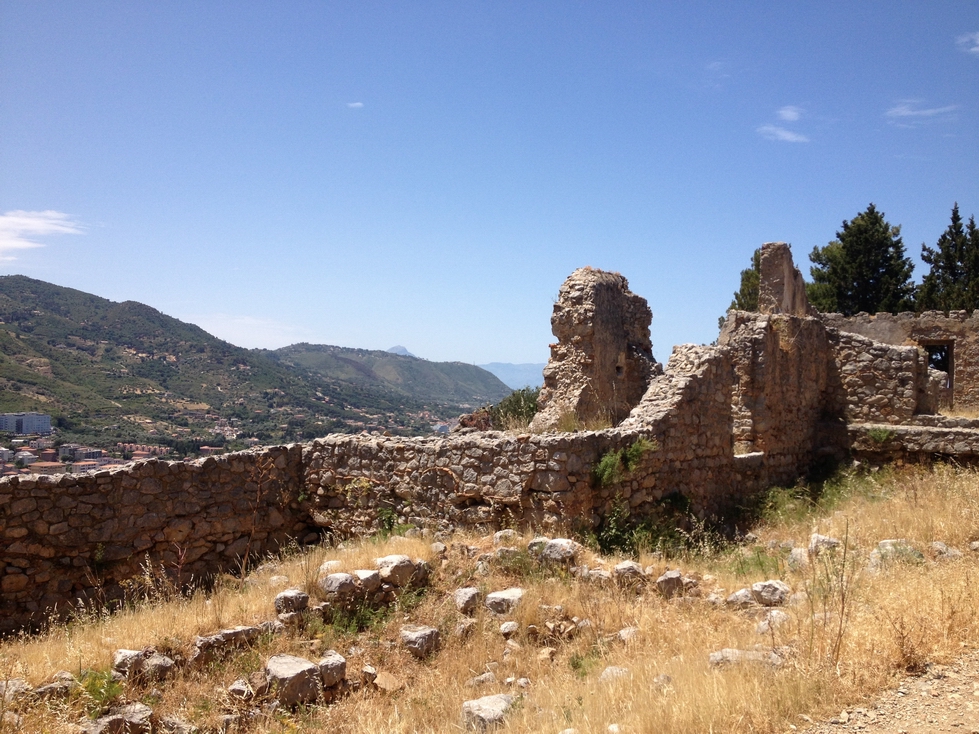
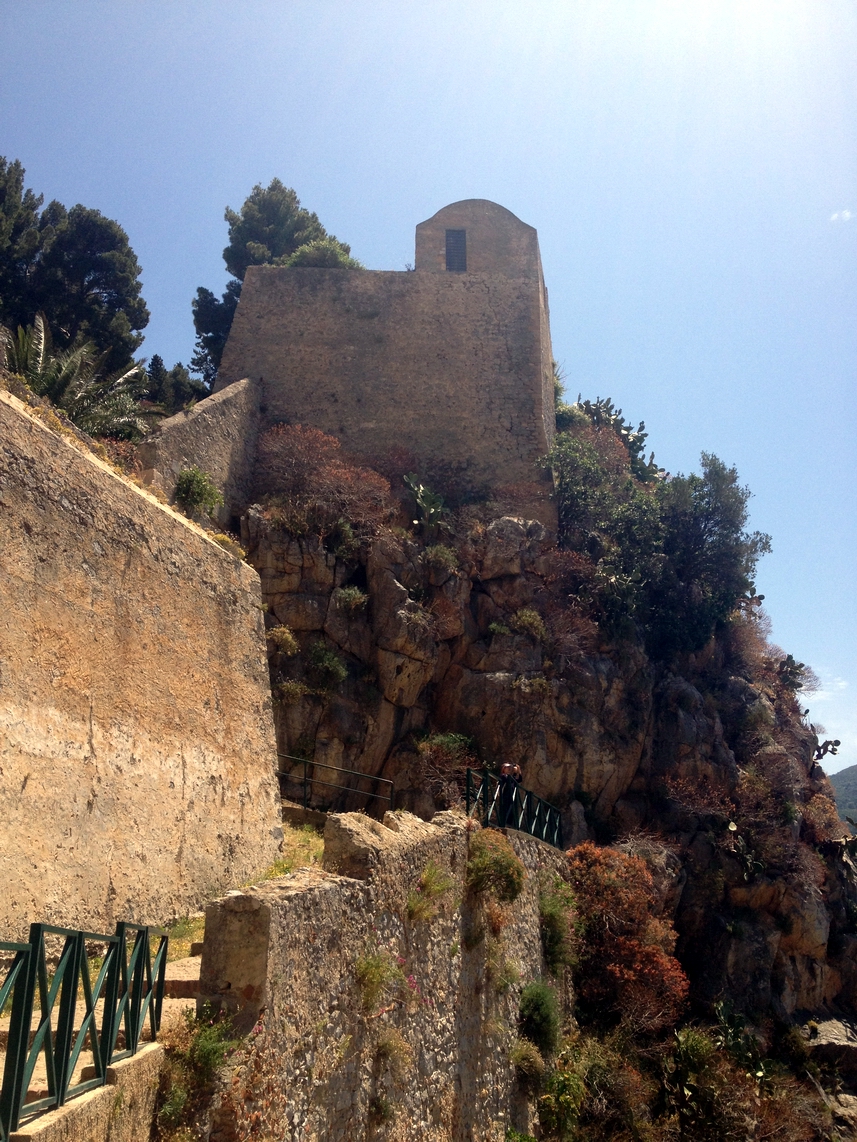
Panorama View from La Rocca
Back to Temple of Diana Photo Page or Index
 |
 |